School Modules
Offers for classes
The Cluster of Excellence Centre for Tactile Internet with Human-in-the-Loop (CeTI) currently offers eigth school modules for school classes, linked to the Saxon curriculum. The modules were developed by scientists together with educators and are aimed at different class levels and types of school. In our workshop, questions and problems of digitalisation are developed and discussed. For example, pupils can also learn the basics of programming and develop their own mobile game. CeTI aims to bring new technologies into the (virtual) classroom and empower learners to use them. The modules are designed for 90 minutes each, but can be flexibly adapted. We provide all the technical requirements to ensure that everything runs smoothly.
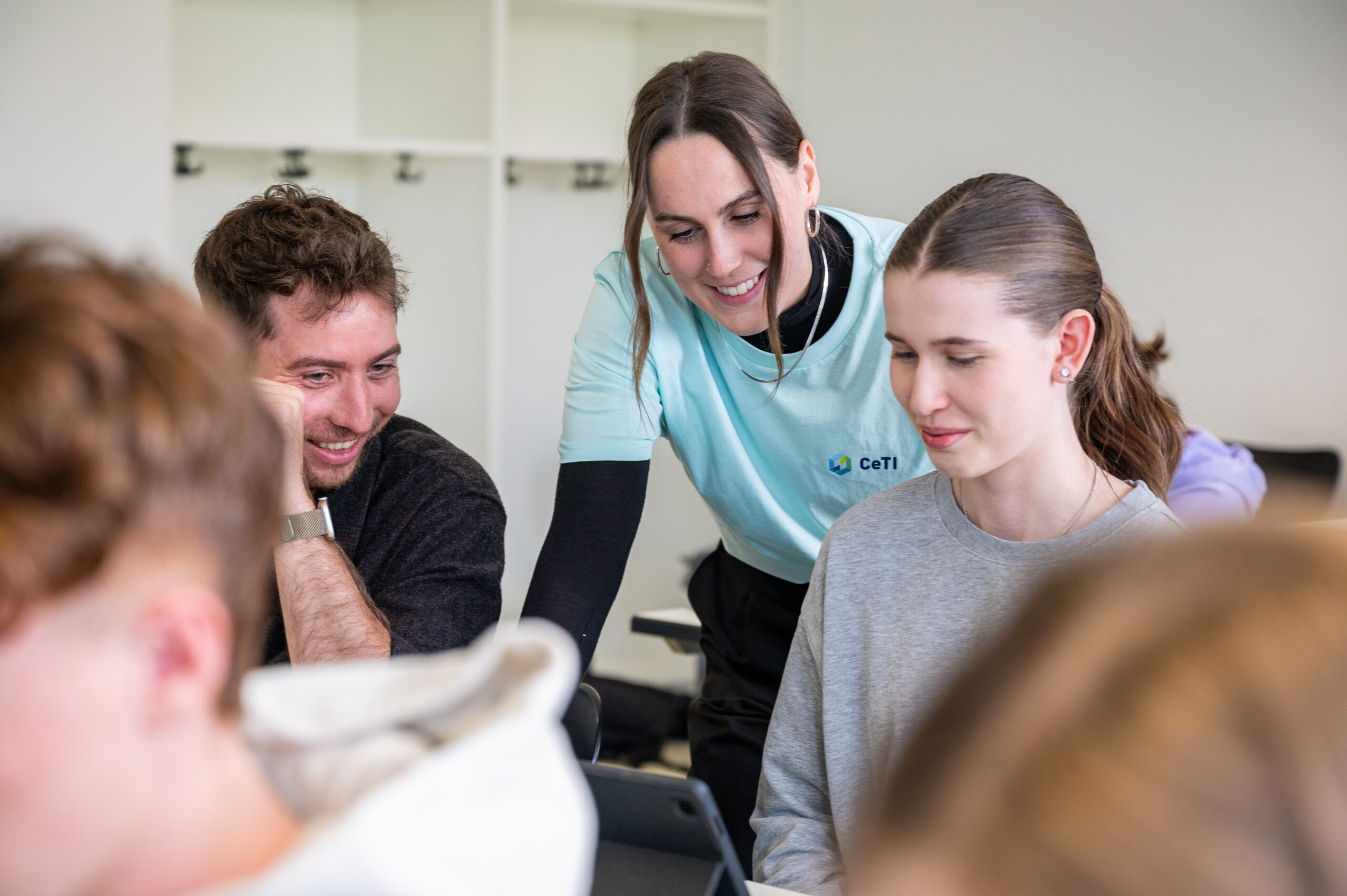

My expectations were exceeded. What I liked best was that I was able to work independently and creatively developed and programmed my own application.
Konrad | Stadtschule Schwarzenberg
Our offers
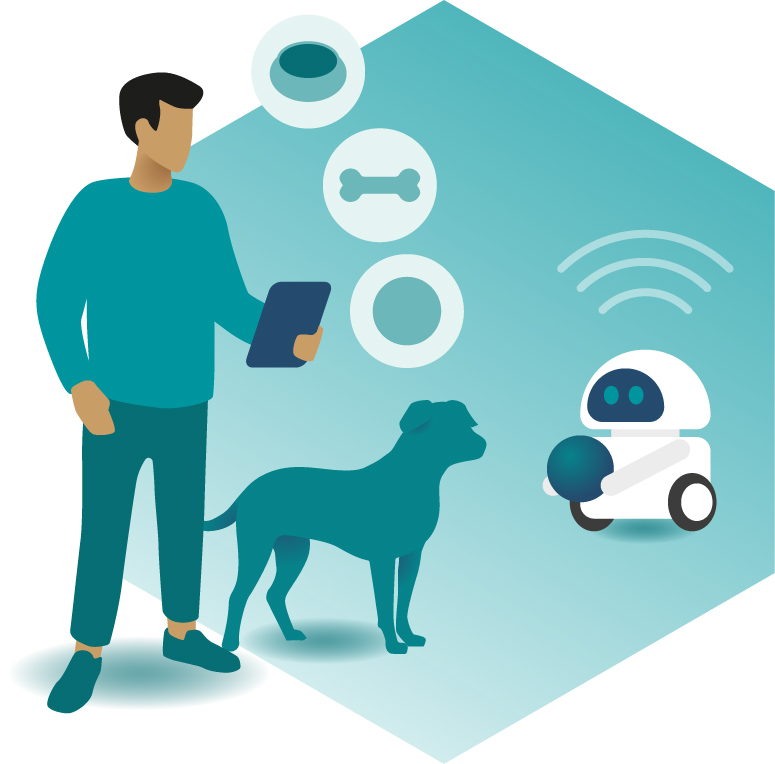
Module 1: Develop your clever everyday helper! How the Tactile Internet can help us in everyday life.
This workshop focuses on robotics. We will show the different areas of application for robots that are already making our everyday lives easier. Using demonstrators from CeTI, we will explain the tactile internet and the associated real-time transmission of data. Building on this, the pupils can become active and, above all, creative themselves: They are supposed to develop their own everyday helper in the course of the workshop.
Curriculum reference:
High school
- Technology and computers, grade 5/6, LB2
- Computer science, grade 7, WB3
- Computer science, grade 8, WB3
Secondary school
- Technology and computers, grade 6, LB1
Elementary school
- Crafts, grade 4, LB3
In co-operation with RIG
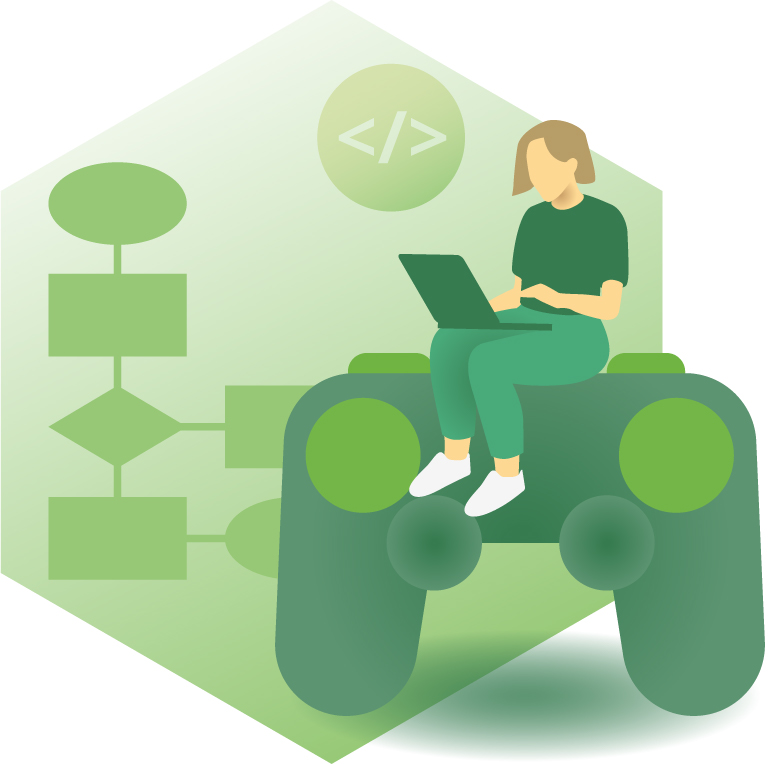
Module 2: Programming algorithms? A piece of cake!
Pupils use algorithms every day, because most young people have access to social media today (YouTube, Instagram, TikTok, etc.)? In this workshop, learners will not only learn about the functions and features of algorithms, but also programme an algorithm themselves. In the form of a mini-game, learners apply the knowledge they have acquired and can try programming themself.
Curriculum reference:
High school
- Maths, grade 8, WB1
- Computer science, grade 8, LB2
- Computer science, grade 9/10, LB4
Secondary school
- Computer science, grade 7, WB1
In co-operation with Schaufler Lab

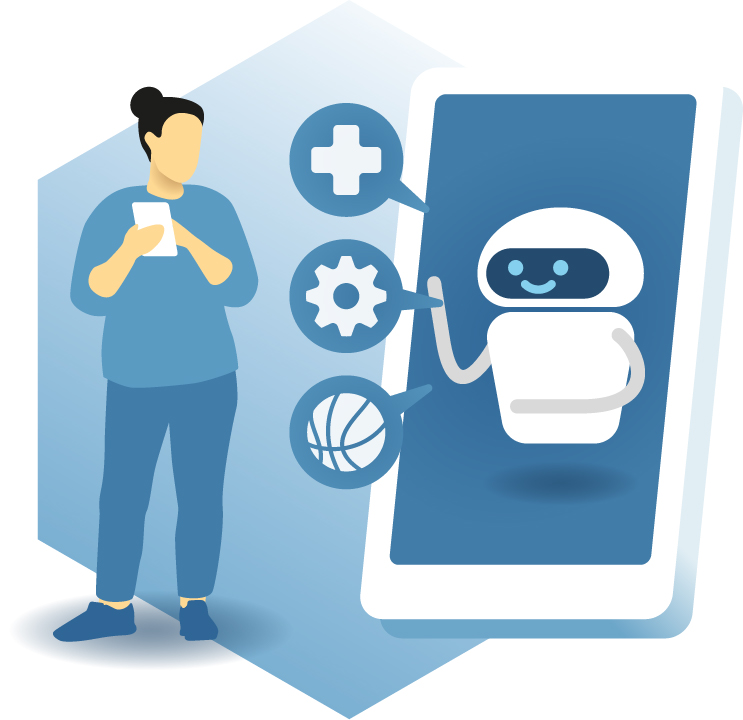
Module 3: The robot will take out the rubbish tomorrow – the impact of digitalization on society and workforce.
Digitalisation is a highly topical term, but what does it actually mean? In this module, students will learn about the scope of digitalisation with a particular focus on the medical and leisure sectors. Case studies will be used to work out exactly where the opportunities and the dangers of digitalisation lie. The workshop will also be underpinned by CeTI’s current research projects.
Curriculum reference:
High school
- Computer science, grade 9/10, WB4
- Computer science, basic course 11/12, LB1

Module 4: All unfair?! This is how discriminatory AI can be.
Artificial intelligence can already do almost everything we humans can do: Painting pictures, driving cars, holding conversations and much more, but it is actually also capable of marginalising people. In this workshop, students will learn what AI is and where it can be used. They will then discuss how AI puts other people at a disadvantage and how they can take action against this discrimination.
Curriculum reference:
High school
- Computer science, grade 9/10, LB4
- Computer science, basic course 11/12, LB5
- Ethics, grade 7, LB3
- Ethics, grade 10, LB1
Secondary school
- Computer science, grade 8, LB2
High school with professional focus
- Computer science, grade 12/13, LB3
- Computer science, grade 12/13, WB2
In cooperation with Schaufler Lab


Module 5: Clever coding with the Calliope mini.
Is programming only for real computer science professionals and far too difficult for schoolchildren? That’s nonsense! In this module, we learn the basics of programming together and develop cool applications with the Calliope mini. The possibilities are endless – pedometer, temperature measurement or programming an entire electric piano? Together we will find out what is possible!
Curriculum reference:
High school
- Technology and computers, grade 5/6, LB2
Secondary school
- Technology and computers, grade 6, LB1
Elementary school
- Crafts, grade 4, LB3
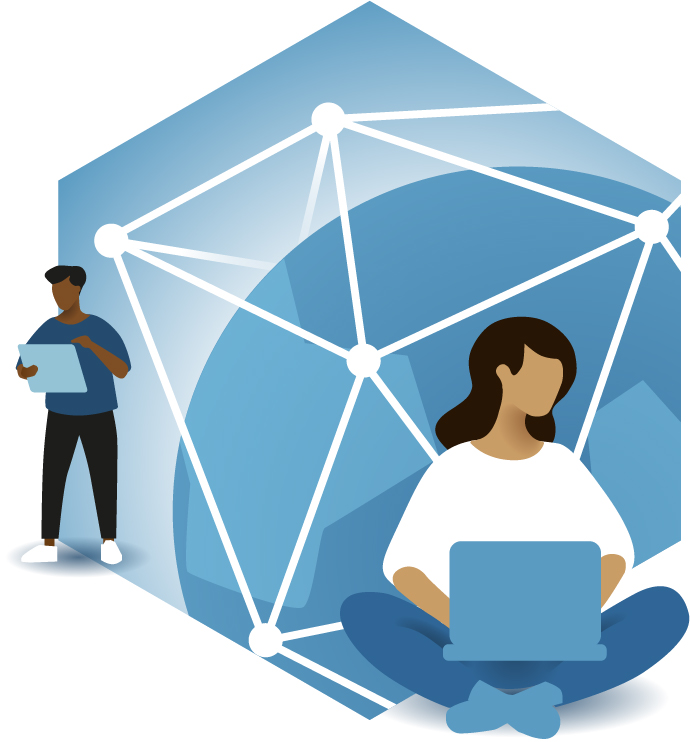
Module 6: Tactile Internet, 5G, Artificial Intelligence – What opportunities does digitalisation offer?
Digitalisation is already an important part of our everyday lives. In this workshop, participants are made aware of where they already come into contact with digitalisation and what exactly is hidden behind these technologies. What do they all have in common and how do they differ?
Curriculum reference:
High school
- Computer science, year 8, WB3
- Computer science, grade 9/10, LB1 and WB4
- Computer science, basic course 11/12, LB1
- Ethics, grade 10, LB1
In co-operation with Schaufler Lab

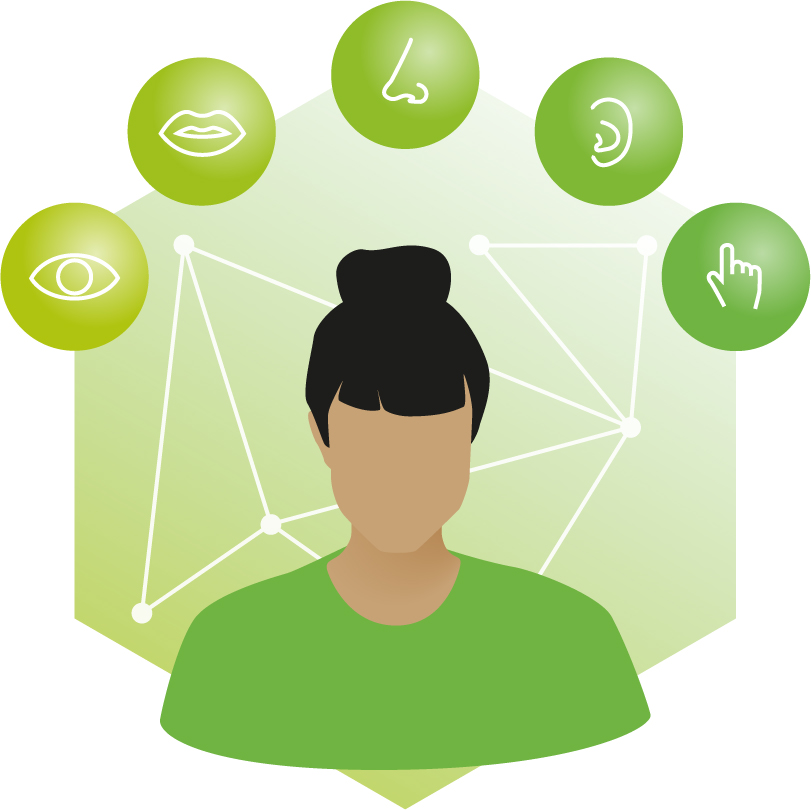
Module 7: Tasting without smelling? How multimodal perception influences our everyday technical lives.
Humans perceive the environment through our senses. This is usually an interrelation of several senses which we often experience unconsciously. This workshop will provide a deeper insight into multimodal perception. Various small experiments will be carried out in order to build a bridge to current examples from technology in which human multimodality has been imitated and integrated. Research content from the CeTI Cluster of Excellence is presented and challenges in the realisation of multimodality are highlighted. This module is initially only possible in person.
Curriculum reference:
High school
- Philosophy, grade 11/12, LB3
- Biology, grade 8, LB1 and WB2
- Ethics, grade 6, LB1
Secondary school
- Ethics, grade 6, LB1
- Biology, grade 8, LB1
Elemantary school
- General studies, grade 3, LB2
- Crafts, grade 4, LB3
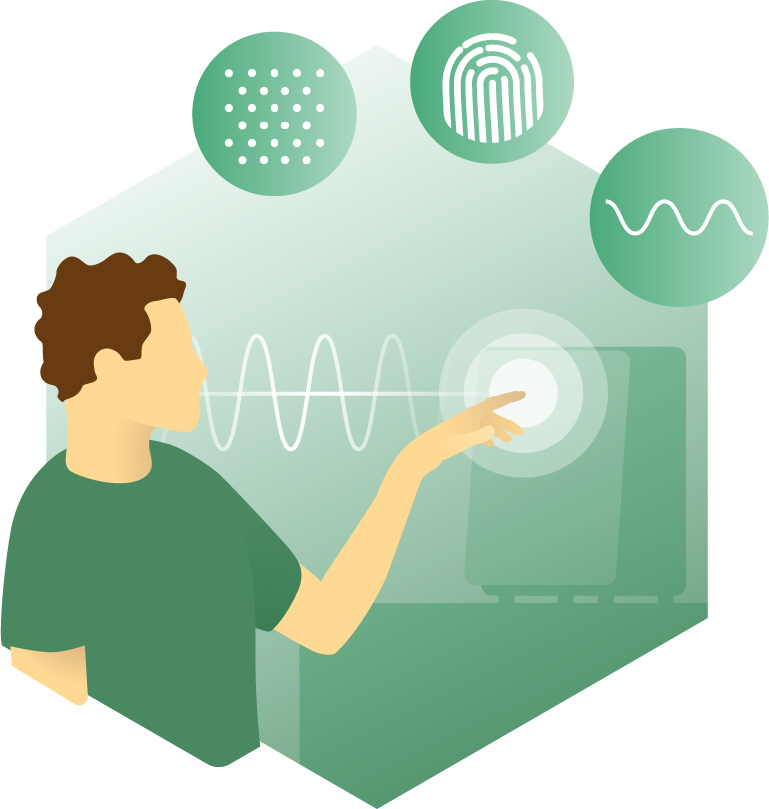
Module 8: Humans, machines, haptics – When machines become tactile
Machines do not yet have a sense of touch like humans do. At the CeTI Cluster of Excellence, we are researching this and want to show in the workshop what developments there are in this area and what possibilities this opens up for humans. This is why we are focussing on the topics of biology as well as mechanics and physics. There will be small experiments in which the functioning of the sense of touch will be explored.
Curriculum reference:
High school
- Philosophy, grade 11/12, LB3
- Biology, grade 8, LB1 and WB2
- Ethics, grade 6, LB1
Secondary school
- Ethics, grade 6, LB1
- Biology, grade 8, LB1
Elemantary school
- General Science, grade 3, LB2
- Crafts, grade 4, LB3

Our aim is to introduce young people to the work at CeTI and to communicate important current topics. We are always impressed by the ideas, motivation and enthusiasm of the participants for our vision of the future.
Maria Pohl | CeTI student helper
Schools attended
(including online)



